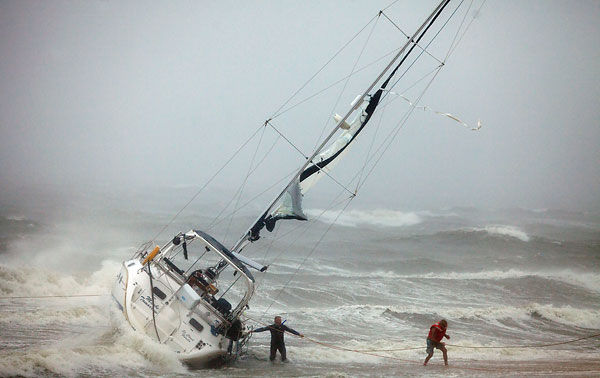Why Do Insurance Companies Require Hurricane Plans?
My insurance company is asking me for a hurricane plan. What is this and why is it required to obtain hurricane coverage?
This is a common question I hear these days amongst my yachting buddies. To many boaters, this hurricane plan is just another paper form among stacks of paper that stand in their way of obtaining coverage for their yachts. But this form does serve a purpose for insurance companies. It helps them determine whether you are a reasonable risk and also calculate your premium.
Like any business, insurance companies want to make money not lose it. They look at individual boat policies as an investment risk. Will your policy earn them money or lose them money? It is that simple of a concept. Now let’s look at the boat’s itinerary for the coming year and mooring location. If you have a boat moored in say Lake Michigan, an area that has not seen a hurricane in the 80 plus years the National Weather Service has been able to track hurricane data, an insurance company is going to look favorably on your boat policy. Assuming you have no previous claim history, a well maintained vessel and an experienced captain to man the boat, you can bet your premium will be low in comparison to regions subject to annual hurricanes. In fact, you may not be required or even asked for a hurricane plan.
If however, you moor your vessel in Miami, FL year round, an area that averages a severe storm every two years and last experienced a hurricane in 2005, insurance companies are going to require hurricane plans. Your boat policy is looked upon as a higher risk. The insurance companies will want to make sure you are protecting your property (their investment) from disaster. This is why hurricane plans are needed.
How to fill out a Hurricane Plan?
In many cases, insurance companies will make it easier for you by providing their own hurricane plan form with a set of questions for you to answer. Common questions asked are the following:
- Where do you plan to keep your vessel in the event of a hurricane
- Do you have an agreement with a particular marina or storage facility? (If you do, submit a copy of your agreement in with the hurricane plan to the insurance company as added proof).
- Who looks after your vessel in your absence?
- How frequently do you visit your vessel? (It is important to note here insurance companies hate absentee owners. That is a very bad thing. Make arrangements to have someone attend your vessel in your absence and yes, they will demand name and contact information of this caretaker).
- Who is the captain?
- Do you have a hired crew? If so are they full time or part-time?
- How will you secure the boat?
- Have you experienced a hurricane before? If so, what advice can you give?
Ultimately hurricane plans act as an assurance that you are a responsible boater and sound risk to insurance companies. Insurance companies can not avoid hurricanes. Eventually, a hurricane is going to make landfall, but at least insurance companies have the small piece of mind. That is because precautions are being made to protect their investments and hopefully minimize damage.
Tip
One last parting advice I will give for those who read this post is to always follow your hurricane plan in the event of an actual hurricane. If you do not follow your hurricane plan and later need to report in a boat claim, insurance companies may not pay because you diverted from your original hurricane plan. If you need to alter your hurricane plans for whatever reason, always call your insurance agent first. Notify them of your revised plans, and ask if plans will be acceptable. This way you’re protecting yourself from financial ruin.
